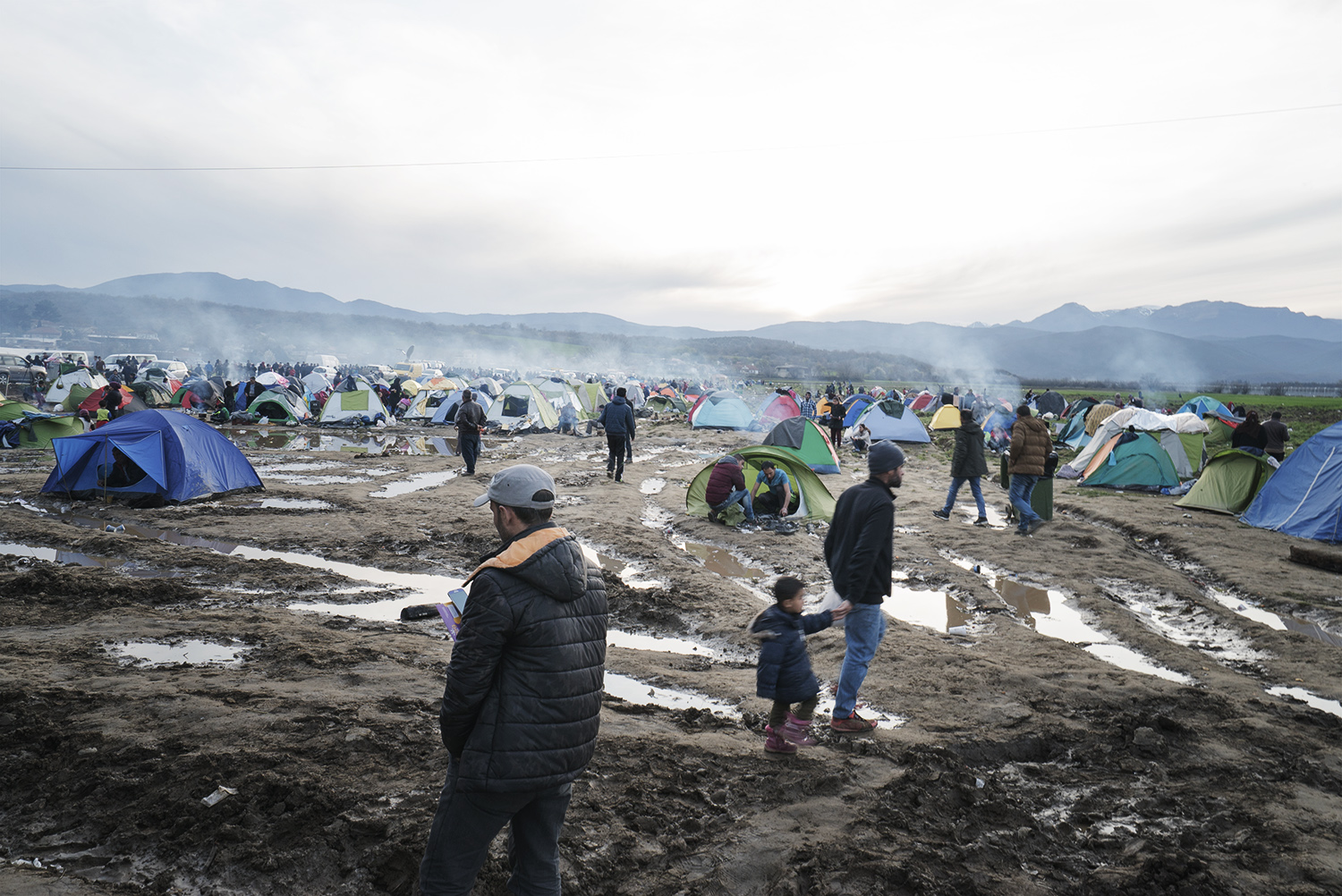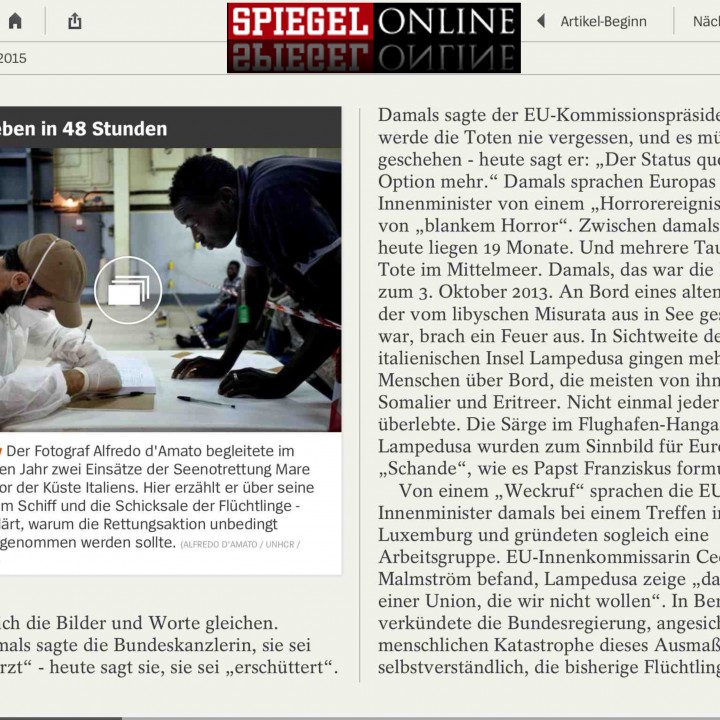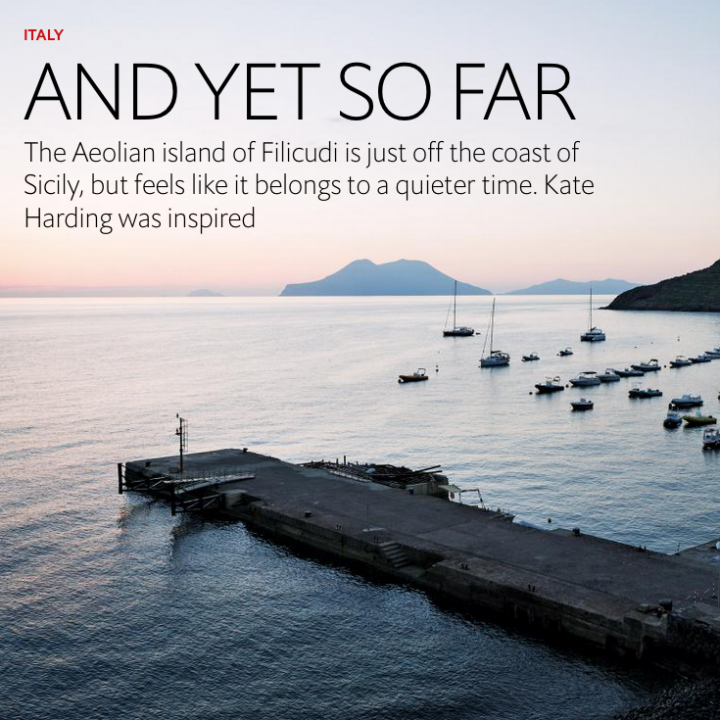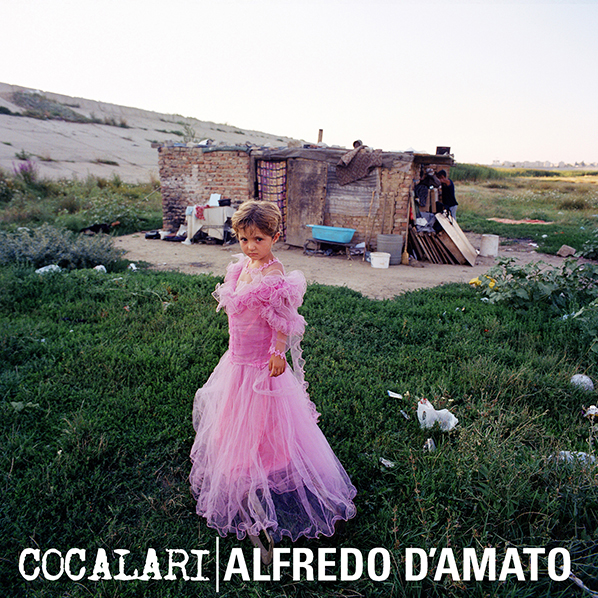Last Stop: Idomeni

Greece, Idomeni border. Refugees walking down the muddy field, where camping tends have been set up in view of crossing the border.
“I see my trip to Idomeni on the Greek – Macedonian border as a turning point in my experience of following and reporting on the Syrian diaspora across the Middle East and Europe. Last year I visited Izmir in Turkey where hundreds of Syrian refugees had gathered at the city’s train station. There were life jackets on sale outside every shop near the station; selling them had become big business in a city that had become a major staging post for refugees making their way to the southwestern coast where those who could afford the price would pay smugglers to take them across the narrow stretch of sea to Greece – and a new life. The crossing to Greece, viewed by many as the most treacherous part of their journey, was for many just the beginning of often epic journeys to northern Europe.
I picked up the migrant trail in Idomeni in northern Greece again. It was a cold and overcast day and a thick mist had settled on the sprawling makeshift encampment that had sprung up just south of the border. The smell of burning plastic hung heavily in the damp air as families and other groups of people moved across the terrain, laden with backpacks and sleeping bags in search of shelter. The village abuts Macedonian border and lies along the main road leading from Thessaloniki to Skopje, the Macedonian capital. In recent months it has become a chaotic refugee camp as thousands of refugees hunkered down where ever they found space, waiting to make their next move toward northern Europe. The majority of refugees come from Syria, Iraq, Afghanistan, Pakistan, Iran and other parts of the Middle East, leaving behind war and persecution and hoping for a safer, more prosperous life in Europe.
With the onset of spring in 2016 and the numbers of refugees travelling through the Balkans once again burgeoning, the mood in destination countries like Germany and Scandinavia started to turn against the uncontrolled flow of migrants. Following the lead of countries further north such as Hungary, Croatia and Slovenia which had closed their borders in 2015, Macedonia decided to seal its southern frontier, trapping tens of thousands of people in Greece. With people continuing to arrive in their thousands, Idomeni has become the last stop for many would – be asylum seekers following a deal between the EU and Turkey which would see Turkey take back thousands of refugees that illegally entered the EU and the EU fly selected refugees directly from Turkey to northern Europe.
The thousands of migrants and refugees now stuck in Greece face one of two eventualities. They can either apply for asylum in Greece and hope that EU countries will come to some agreement which will see them accepting tens of thousands of refugees on a quota basis. Or they can expect to be repatriated to Turkey where they can hope to be selected or resetlement. Both options are fraught with uncertainty and the refugee crisis which the EU is facing has opened deep rifts between member countries that have so far failed to agree on a coherent strategy to deal with the biggest refugee crisis since the Second World War.
The misery of Idomeni was a stark reminder for me of the precarious life of a refugee and how the vagaries of politics can
determine lives.”



